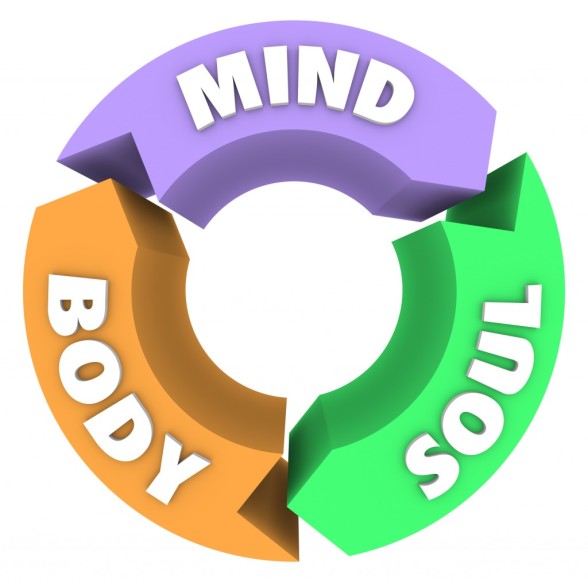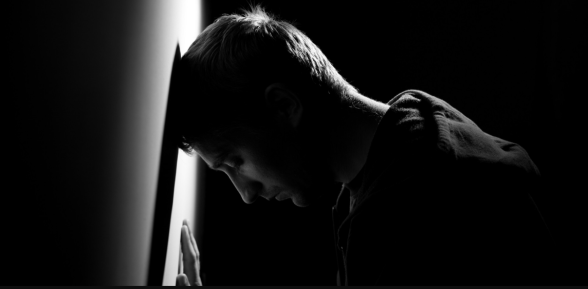I’ve been thinking a lot about the statistics on suicide and why nationally the stats on male suicide are so much higher with 76% of people dying by suicide being men, compared to 24% of suicides being by women. That’s over three times the rate of women.
In 1981, 63% of UK suicides were by men, compared to 37% who were by women. Whilst suicides by women have stayed “consistently lower”, suicides by men has “significantly increased” according to the Office of National Statistics.
I’ve spoken with various professionals in mental health including my own therapist and of course some fellow patients like myself who access services.
Some thoughts are that it is down to the old adage of men not going to the doctor until it’s far too late or that the stigma around mental health being a “women’s thing” or that “men are strong” and so on.
Should we be using a gender specific approach or treat mental health as a one size fits all?
Just think about a mixed gender talking therapy group. Let’s say for argument a man who after years of hating himself for being “weak” finally goes to talking therapy and is the only male in the group which then reinforces his ongoing self stigma around him not being “normal” and that mental health is a “women’s thing”. Whilst I do think mixed gender groups can work well I see no reason for not having gender specific groups for men as already exist for women.
Biologically we are of course very different and this biological difference plays a part in how we form our gender identities as we grow older. Often men deal with their emotions in very different ways such as punching a wall or door as I’ve done myself on occasions. I would suggest testosterone plays a part here. I believe men with mental health issues often find themselves in a prison cell rather than receiving treatment.
According to the stats men are more likely to use drugs, especially alcohol to suppress their emotions, so violent outbursts or behaviour shouldn’t be too surprising, although completely unacceptable.
The stats show women are diagnosed with depression almost twice as much as men and according to the stats they are also twice as likely to go to their GP when feeling depressed. This could be down to many factors including women being more self aware of their emotions a study has found.
Let’s think about this, men are killing themselves three times the rate of women yet are only half as likely to be diagnosed with depression?
I would suggest men are experiencing depression in at least equal numbers but due to the way society reinforces gender sensibilities men suffer in silence, therefore explaining why so many more are killing themselves and why the stats are so low for men with a mental health diagnosis. Men also find it harder to express their deep emotions or articulate them in the same way women do, another study has found.
I’ve been reading different papers whilst researching this blog which at times has been a challenge as my own depression has got in the way. One of those papers that Damien Ridge, Carol Emslie & Alan White are authors of talks about the lack of research into “Male Distress” and raises social factors that can add to or even ignore this.
For example research into cancer doctors found they were more likely to offer emotional support to women than men. Gender sensibilities often affect us unconsciously and clearly this is the case here. I encourage you to read this paper.
I was pleased to be introduced to Dr Bob Phillips on twitter whom is a cancer specialist with young people. He recognised this unconscious bias in the paper and has challenged himself to think about the young boys he treats and if they are receiving the right level of emotional support, as we men often avoid admitting any vulnerabilities or ask for help before it’s too late.
I hope more doctors like Dr Bob challenge their unconscious stereotypes on what society has taught them to think when it comes to men and their emotions. I certainly know I’ve challenged my thinking on this as I’ve researched the very complex subject of gender.
Since starting this blog the moving documentary “Suicide and Me” has aired on BBC Three where Stephen Manderson aka Professor Green talks about his dad who took his own life. In response to the documentary I’ve seen reactions by women who understandably feel the rate of female suicide shouldn’t be ignored.
Firstly of course women who take their own lives is equally tragic and must be talked about too but we must ensure we don’t ignore the shocking statistic that 76% of all suicides are by men. I’ve often felt talking about suicide in general is received positively but when I’ve raised male suicide specifically, many but not all seem to go very quiet. Just like it is okay to raise awareness around violence against women, we must also find raising awareness of male suicide equally acceptable. Men experience domestic violence too but that wouldn’t be a reason not to campaign on behalf of women whom are often the victims.
To ignore the statistic of 76% of suicides being by men is to do both sexes a massive disservice as every brother, father or son has a sister, mother or daughter whom will be left with the horrific repercussions of male suicide.
“A single suicide is like dropping a pebble in a pond, the emotional ramifications spread like ripples through the lives of all who were related to and knew them; but unlike ripples leave a permanent imprint on the lives of loved ones with unresolved and unreasonable grief spreading through to future generations” says my very experienced therapist whom has helped me so much over the years.
Often services tend to reflect the people who use them and it is easy to put in systems or structures that help that demographic which is often women as I’ve raised above who use these services the most.
I remember being the only man in a group discussing naming a building which was supposed to be for men too, yet they were absolutely taken away with calling it “Blossom House”.
I tried to explain that this could make it very difficult for a man accessing services and how de-masculating the name was. After hearing view they saw I had a point and named it after a tree instead which somehow felt much better.
My point in telling you this is if women are accessing services nearly twice as much as men we are in danger of moulding these services around them, therefore risking marginalising men from accessing these services due to the stigma that mental health is a “women’s thing” or simply not providing a comfortable place where men can feel they belong too. If we want more men to seek help before it’s too late we must ensure those services encourage them to do so.
One of the reasons I try to talk about my mental health is that I want other men to understand it is okay and it’s not a “women’s thing” and that they are not alone.
However after much self analysis many of my friends are women and I feel comfortable talking with them, even showing vulnerability too, yet when talking to another man I find it much harder.
Showing vulnerability isn’t easy for anyone and for men even harder.
Back to the reactions of some to Professor Greens documentary I’ve seen both sexes refer to feminism and the changing power balance but I find this hard to believe as I think biology combined with social stereotypes is the most straightforward explanation. If you asked one of the 4,623 men who took their own life last year why they did I doubt feminism would be in the list of reasons. I think feminism has done a tremendous amount of good challenging the social stereotypes I’ve mentioned in this blog. I believe women have rightly made significant strides in gender equality and I don’t see why men can’t also do this by challenging the old stereotypes society has put on what a “real man” is or is not. I think this has already started especially by younger generations of men who like Professor Green aren’t afraid to show their emotions.
It would be a massive mistake to pit the sexes against each other as the only way real change happens is when we all work together. When I see tweets about breast cancer or domestic violence against women I will often retweet to do my bit to raise awareness and I sincerely hope women will do the same for male suicide as if we men don’t talk to each other about it, maybe women can start the conversation by also spreading awareness, support or even starting the conversation with their respective partner/relative/friend.
So after raising many of these questions I am coming to the thinking that just like we have many organisations supporting women surely it is only right to highlight men’s mental health such as The CALM Zone currently does.
The CALM Zone seem to be ahead of society on this and are trying to mainstream mental health for men whilst providing a service specifically targeting men at risk of suicide.
I could be wrong but my understanding is The CALM Zone recognise that not enough men are accessing services or seeking help and realise they must go to them by working with well known men in the public eye such as Professor Green who is a patron of theirs.
Although going to men is a great approach it doesn’t mean we shouldn’t continue to ensure services are equally approachable by men as they are women. The hardest question is what can services do to ensure men do access services and not suffer in silence as seems to be the case?
I would say the first step would be by having a national strategy for men’s mental health as my understanding is we currently only have one for women which was surprising to learn in my research found in The Gender and Access to Health Services Study
If we really believe in gender equality then this must be reflected in health policy. To have a mental health strategy specific to women recognises women have unique needs so surely it is only right to have one specific to men. With the skewed stat of 76% of suicides being by men, I can’t see a more urgent reason to start one now.
Footnotes:
Writing this blog I’ve neglected to talk about my own experiences on this subject and in order not to lengthen this blog any further I would like to simply say I’m very lucky to be here, due in no small part to my amazing mother who believed in me when others didn’t!
Much thanks to my Therapist and Dr Bob Phillips who have both been invaluable resources in helping me write this blog.





